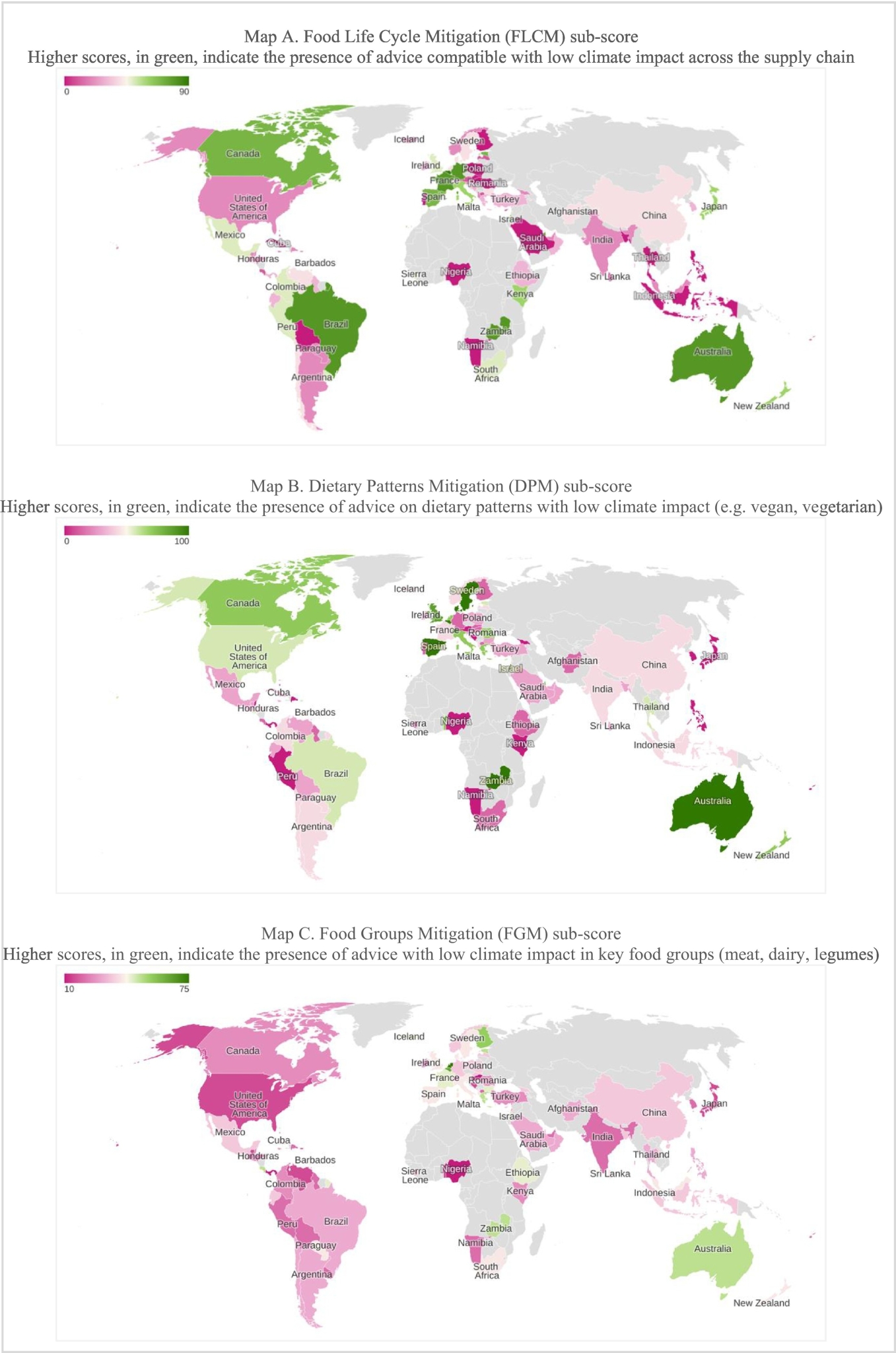September 1, 2023 | Sustainable Production and Consumption | Source |
Introduction: A research team led by researchers from Università della Svizzera italiana in Switzerland analyzed 93 food-based dietary guidelines (FBDG) from 92 countries to assess their potential to mitigate climate change. The FBDG were evaluated and scored on three fronts: food life cycle, dietary patterns, and food groups.
Key findings: Most FBDGs includes only limited low-emissions food advice, with a median score of 31.14 out of 100. High-income countries and those published post-2010 scored better, especially those explicitly mentioning environmental sustainability.
FBDGs frequently suggest eating local and seasonal foods to reduce transport emissions, but often overlook high-impact recommendations like limiting red meat. Meat is generally categorized within broader food groups, allowing for flexible consumption, while legumes are commonly included in protein-rich groups.
Few FDBGs provide specific limits for meat, red meat, and dairy intake, and those that do often exceed recommended limits for planetary health. Overall, only 20 guidelines scored above 50 in climate mitigation potential. This review highlights the need for clearer communication in dietary guidelines about which dietary shifts can significantly reduce climate impact, aligning human health with planetary sustainability goals.

Figure | Geographic distribution of Dietary Climate Mitigation sub-scores. Lowest sub-scores are in magenta and highest sub-scores are in green. Intense green represents a higher presence of recommendations with climate change mitigation potential for the relevant sub-score. Countries in grey were not included in the review, either because they do not release official dietary guidelines or did not meet the inclusion criteria.





